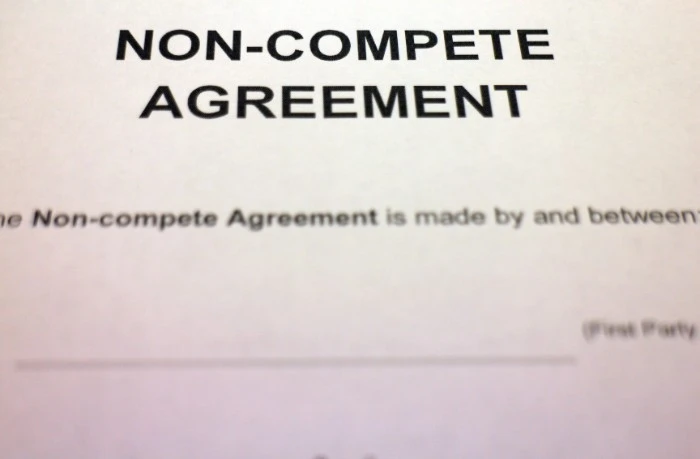Malcolm ZoppiSun Oct 15 2023
What Happens If I Sell My Company (Top 5 Things To Know)
There are multiple things to consider regarding what happens after you have sold your company.

Introduction
There are multiple things to consider regarding what happens after you have sold your company. These include the effect of warranties, capital gains tax and broker fees, liabilities for debts, post-completion obligations and restrictive covenants. We analyse each below.
Top 5 Things to Know
Warranties
Warranties are one of the most important parts of share purchase agreements (SPAs) or asset purchase agreements (APAs). You will have signed one of these agreements when you sold your company. Learn more about the differences between asset and purchase sales and business valuation here.
Warranties are defined as guarantees or promises that the seller makes about the company’s condition to the new owner, including regarding its assets, liabilities, whether you pay corporation tax and other important information such as the purchase and sale agreements that your business was a party to. Learn more about SPAs here.
Enforceability of warranties
The warranties in an SPA or APA are intended to remain valid after the agreement has been signed. This means that if one or more of the warranties were untrue, the new owner may seek to hold you liable for any losses arising from it or the transaction may be invalidated. Learn more about what is involved in corporate acquisitions here.
For this, even after the sale of the company occurred, you may still be at risk of a warranty claim from the new owner. To minimise the risks related to warranty claims, be sure to instruct corporate lawyers like GZ Legal. A good legal professional will help you by qualifying the warranties via the use of ‘Disclosure Letters’ (documents that have been disclosed to the buyer during the extensive due diligence process). Further, a good corporate lawyer will negotiate the wording of the warranties and reduce the scope for claims. Learn more about how corporate lawyers can help you here.
Capital Gains Tax, Entrepreneur’s Reflief (Business Asset Disposal Relief) & Business Broker Fees

There are multiple costs to consider after the business has been sold, including whether you owe capital gains tax (Capital Gains Tax) and business brokers’ fees (for helping you sell your business by finding potential buyers).
Capital Gains Tax is the tax charged on profits from the sale of an asset. It should be calculated based on the difference between the sale price and purchase price of the asset, less any allowable expenses. This may be more complicated if the deal was done via an asset purchase (sale of business assets).
Minimising capital gains tax
To minimise Capital Gains Tax, you may want to consider Entrepreneur’s Relief (ER). ER, now known as Business Asset Disposal Relief, is a form of tax relief available to business owners who have owned the business for more than 12 months. The relief reduces the amount of Capital Gains Tax that must be paid and can provide a great tax saving for those who qualify. Speak with your tax advisor about Business Asset Disposal Relief.
The cost of selling your business online (price to attract buyers)
Finally, it is important to consider any business broker fees that may be applicable in the sale of your limited company (the price of finding prospective buyers to sell your business). The broker will have spent time and money finding potential buyers to help you sell your business. In return, they will expect a fee. Ideally, you will have used a good broker who worked with you to ensure that the fee structure is suitable and that all costs are known.
Debts of the limited company & personal guarantees
Whilst running your limited company, you may have taken on debts and signed personal guarantees. As the seller, it will be important to indemnify yourself against these debts, especially if they are attached to you as an individual. In this case, you should request a written indemnity from the buyer that confirms they are taking on responsibility for all debts and/or personal guarantees made by you as part of the sale.
To note on personal guarantees
It is important to note that if you have signed a personal guarantee and then sell your business, you are not automatically released from your guarantor obligations. Lenders may still seek to recover the debts from you personally, a risk that must be minimised using indemnities or by varying the lending terms to relieve you of your guarantor obligations. Seek the assistance of a corporate lawyer to minimise these risks.
Post-completion obligations & business assets
After the sale of a limited company is completed, the seller needs to fulfil any post-completion obligations. Generally, this includes handing over the reins of the business to the purchaser, including all relevant documents and records associated with the sale.
Staying in the business after the sale
Depending on what was agreed upon in the sale agreement, there may also be a requirement for the seller to stay on and work in the limited company for a set period. In such circumstances, they will owe a duty of care towards the company, and the buyer will expect the business to be managed as it was before the sale occurred. Furthermore, any conflicts of interest resulting from this arrangement must also be carefully managed to ensure that the interests of both parties – buyer and seller – are fairly represented at all times.
Specific obligations
Finally, any other post-completion obligations specified in the sale agreement or contract must be met promptly. This could include tasks such as providing access to premises or equipment leases, preparing documents for Companies House, transferring liabilities, cancelling contracts with suppliers or customers and more. As such, the seller of the limited company needs to remain vigilant and organized regarding the fulfilment of these obligations. Doing so will help ensure that all parties involved in this transaction can move forward with the best possible outcome. Learn more about what is involved in corporate acquisitions here.

Please note that an asset sale may require purchase lease agreements to be drafted, which may be subject to a landlord’s consent.
Restrictive covenants
What are restrictive covenants in an acquisition
Restrictive covenants are commonly included in a share or asset purchase agreement as part of the consideration for the sale of your limited company. They are also known as a buyer non compete agreement. These restrictive covenants are designed to protect the purchaser’s newly acquired rights and interests while balancing them with your freedom to pursue new opportunities.
Such restrictions may limit you from setting up a new business or service that competes directly with the purchased business. It may also restrict you from soliciting customers or clients of the purchased business, either directly or through any other competing businesses. Additionally, there might be provisions in place that prevent you from poaching any employees who have already been employed by the purchased business to work at a new venture.
What is the effect of restrictive covenants in an acquisition
These restrictions are designed to provide certainty and protection for the buyer of your limited company. However, it is important to ensure that all such restrictions are reasonable in their scope, duration and geographical coverage. If the restrictive covenants go too far or persist for too long they could be deemed unenforceable in a court of law. Learn more here about the enforceability of restrictive covenants.
NDAs in acquisitions

Further, you may have signed a non disclosure agreement that remains enforceable for several years post-completion. For this, you will need to respect the restrictions on the sharing of confidential information.
It is therefore essential that you understand the full implications of any restrictive covenants contained in a share or asset purchase agreement before signing it. Professional advice from a corporate lawyer should be sought if you have any questions regarding these restrictions to ensure that your freedom to pursue new opportunities is not unduly restricted by overly burdensome terms.
Conclusion
In conclusion, a successful sale of a limited company requires careful preparation and attention to detail. From the initial negotiations through to the post-completion obligations and beyond, various legal considerations must be taken into account throughout the process. Therefore, seeking advice from corporate lawyers as soon as possible is critical for ensuring a smooth sale transaction with minimal risk. With the right legal support in place, you can rest assured that all aspects of this important transaction will be managed properly and your interests best represented at every stage.
Find out more!
If you want to read more in this subject area, you might find some of our other blogs interesting:
- Step-by-Step Guide on How to Transfer Shares to a Holding Company
- Breach of Settlement Agreement: Consequences and Remedies Explained
- Who Gets the Money When a Company is Sold?
- What is a Counter Offer in Contract Law? Explained Simply and Clearly
- Understanding the Costs: How Much Do Injunctions Cost in the UK?